Some babies and infants develop umbilical hernia after healing of the umbilical cord. The consequences of having a hernia is often not serious except in cases where the intestines becomes obstructed. Despite the minimal effects hernias have, most parents are apprehensive. I guess I’m no different.

I’m writing this post to share my first hand experience with umbilical hernia.
After my daughter’s umbilical cord had healed without any infection whatsoever, I noticed her naval was beginning to bulge out whenever she cried or strained. This was when she was three weeks old.
I yelled anxiously to my husband the first time I saw the bulge. He examined the bulge and assured me that it would reduce in size as our daughter grew.
However, the worst case would be a surgery. But it was very unlikely in her case. He is a medical doctor and a good one so I believed him. But, I was still anxious. Questions bugged my mind. Was my little cutie going to grow with her innie as an outie? How soon could we have the surgery if the bulge didn’t reduce? What if something went wrong with the surgery?
I’m sure you understand me. Mommies and parents can worry about nothing and everything!
What is umbilical hernia?
Simply put, it’s the bulging out of abdominal contents like the intestines through the belly button or navel. Umbilical hernia occurs in one out of five newborns. But the good news is, nine out of ten of them will close on their own. Source.
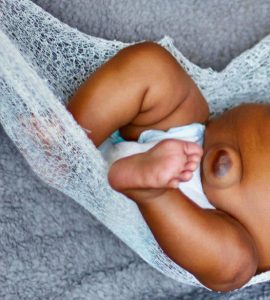
The umbilical cord is an important structure that connects and allows transfer of blood and nutrients from a mother to a developing baby through the placenta.
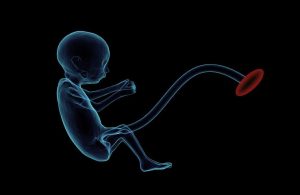
When the umbilical cord is cut after delivery, it takes about three to seven days to fall off completely. After falling off of the cord and healing, if the hole in cord doesn’t close “right” or completely, it leads to umbilical hernia.
Risk factors for umbilical hernia
Premature babies or low birth weight
Babies with low birth weight particularly premature babies have an increased risk of developing umbilical hernia. Babies born before 37 weeks are termed premature or preemies. Their birth weight is usually less than 5.8 pounds or 2.5kg.
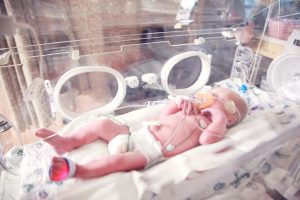
This post may contain affiliate links. Read disclosure for full details.
Baby Colic’s
It’s when a perfectly healthy baby cries uncontrollably and persistently for no apparent reason. The cries can be intense, high and so distressing.

Colics may be caused by gassiness, acid reflux, food allergies (in mom’s diet) or to infant formula and over stimulation. Source.
Some ways to soothe a colicky baby are to respond to their cries by soothing them; rocking them, burping more often, baby wearing by using for instance this wrap. Although breastfeeding is beneficial, the diet of a breastfeeding mom may cause colics.
Colics predisposes babies to umbilical hernia. This is because, too much crying increases abdominal pressure, which may lead to umbilical hernia.
Symptoms of umbilical hernia:
The typical symptom of umbilical hernia is a bulge at the umbilical area or naval. This is more obvious when a baby cries, strains when pooping or laughs. The bulge becomes less prominent when baby is calm.
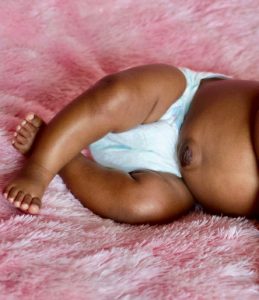
Most umbilical hernias are painless except when complicated by the intestines getting stuck in a smaller opening.
Myths about umbilical hernia
Some people believe putting a coin in the naval can make the bulge go away. On the contrary, this is not true. The bulge goes away on its own with time.
The hernia does not need to be forcefully pushed in. Source.
When should I worry about my baby’s umbilical hernia?
Should you notice the following in baby, it means the intestine is possibly obstructed, hence, urgent medical attention is required:
-Sudden onset of vomiting
-Baby crying inconsolably
-The bulge gets tender to touch; discolors or swells. Source
After about five months, I begun to notice a gradual decline in the bulge. By ten months, the bulge had completed deflated.
In conclusion, umbilical hernias are harmless. Despite this, any of the above signs needs medical attention. A prompt diagnosis can help prevent complications. If a hernia is not corrected within two to four years, surgery may be required.
Have you ever seen an umbilical hernia in a baby or toddler? Do you also have a first hand experience with it?
If you found this post informative, would you be kind enough to share?
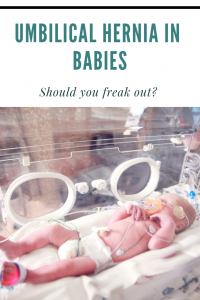


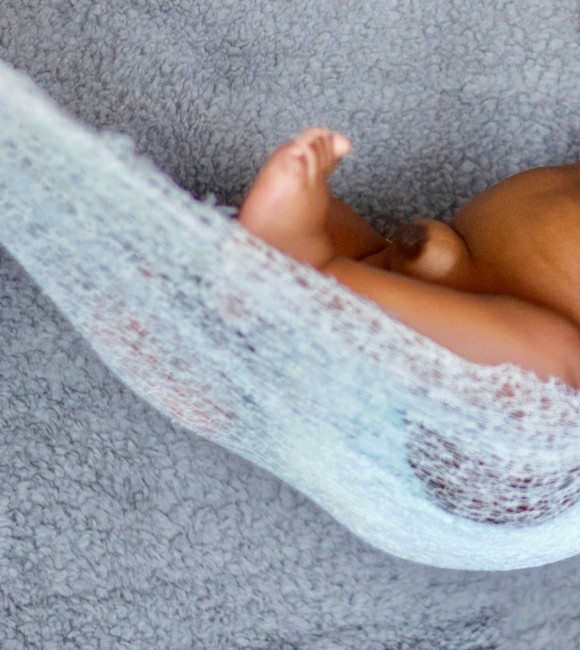

It’s my first time experiencing this, I have an 9 year old son who’s bellybutton never had problems and I have a baby now who’s bellybutton has a hernia I was so scared but the pediatrician said to just allow it to be and just to care for it not pressing on it to much I hope it goes down soon my baby does have a lot of colic and he pushes a lot.
Hello Alma. I had a colic baby too. And it can be distressing to see the bulge especially when they cry or strain. However, just know your child is not in pain. You can touch the bulge to see if he cringes (he won’t). So like the pediatrician said, don’t worry. Allow it to be. With time, it will definitely go down.
I wish my 3months baby boy too will be free from soon…thanks your words are motivating.
He will… it’s only a matter of time. He’s not in pain or anything of that sort so please try not to worry mama. Sending you hugs
My son is 10 1/2 months old and I notice that his belly butto is starting to bulge at the top more so now than before. The bottom is in innie and the top an outtie with a slight bulge when he strains to use the bathroom or pass gas. I wasn’t too keen on the way it healed to begin with but I’ve noticed as he’s getting older it’s more noticeable. Will this go away? Or will he have this forever? Should I be concerned?
Hey Mama. It’s absolutely normal if you’re worried because I was too. It usually gets bigger before it gets smaller. Based on my experience, I’d say don’t worry but do see a doctor for professional medical advice. I wish you the very best!
I am a 63 year old that had umbilical hernia that was repaired at9 months of age. Growing up it was really hard for me to wear a two piece swim suit or undress in front of my girl friends because the scar was the first thing they teased me about. I have often wondered why this happened and why the Dr. repaired it like he did. But back in 1957 parents didn’t ask many questions. My mother tells me ta
Hat she took me to the Dr. and he said bring her to the hospital and he would take care of it. She said she almost passed out when she took the bandage off and saw how he had fixed it.
That’s my story. Thank you for posting this blog.
Elizabeth Kennedy
Thank you Elizabeth for sharing. Your story makes me sad. It must be have been difficult to live with a scar all these years.
I believe millennial moms are learning to advocate for themselves and their families.
I honestly hope you’re able to forgive the Dr that caused you this trauma for all these years and heal completely.